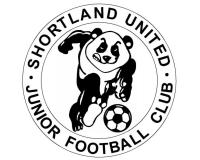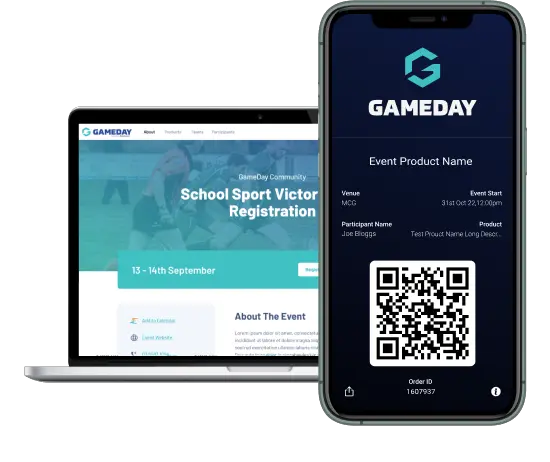Good Sports Policies
Alcohol and Sport information
Good Sports identifies that alcohol can affect your sport and exercise performance in two main ways.
1. Directly: the effect of alcohol or its breakdown products in your body after drinking
2. Indirectly: the effects of alcohol on your sleep, diet, level of dehydration, etc
How alcohol affects YOUR sporting performance
Speed: Affects the central nervous system which slows down reaction time, hand-eye-coordination, accuracy and balance. Energy and stamina: Alcohol keeps the liver too busy to produce the required sugar levels to sustain an athlete's energy and stamina to perform at their peak.
Cramps: while exercising, your muscles burn up glucose, producing lactic acid as a waste product. Too much lactic acid leads to muscle fatigue and cramps. Alcohol increases the risk of cramping dramatically.
Dehydration: the 'drys' is a term commonly used to describe an extreme symptom of alcohol's diuretic (increased urination) effect. This extra fluid loss added to what an athlete sweats out increases the risk of dehydration significantly.
Performance: when you combine all the above, an athlete's aerobic performance is greatly reduced.
Key Facts
Below are some key facts essential for all athletes, coaches and administrators:
- If you have alcohol 24 hours before exercising you are more likely to develop muscle cramps
- Alcohol effects the body's ability to create energy therefore it slows down reaction times, increases body heat loss and reduces endurance
- If you sustain injury while exercising, and you have had alcohol the night before or drink any alcohol afterwards (while injured), you are likely to increase your recovery time significantly
- After exercising, the body needs to be rehydrated. It's not helpful to drink only alcohol as it will continue to dehydrate the body further
- After training or a game – water is the first thing we should drink – not alcohol.
ENERGY DRINKS - Mother , Red Bull and the alike. All will increase blood pressure – different people may have an adverse reaction if used in sport.
- Will cause dehydration (it is a diuretic) contains sugar (inhibits uptake of fluid) caffeine and garana which are diuretics – elevates blood pressure (giving feelings of extra energy) and causes dehydration within 30 minutes – which will reduce energy below the level that existed prior to consuming the drink.
- On sporting field will result with at least 10% loss of energy and consequent loss of fine motor skills.
- Long-term use of these drinks may cause organ failure, sleep disturbances and interfere with behaviour.
- When used with alcohol – it will mask intoxication and allow user to consume larger amounts of alcohol (greater level of intoxication becoming dangerous)
- THESE DRINKS HAVE NO VALUE AS A SPORTS DRINK. If used – should consume water afterwards to reduce the incidence of tooth decay.
- GATERADE AND POWERADE ARE NOT IN THE CATEGORY OF THE ABOVE ENERGY DRINKS.
- These drinks do have Caffeine and Sugar as well as minerals. Caffeine and sugar either inhibit the uptake of fluids into the body or cause dehydration.
- These drinks may be useful after physical activity but they are not a pre-match hydration agent.
- Water is a better method of hydration – attention should be given to hydrating the day before and the morning before competition.
- There are formulated sports drinks – which have ingredients such as carbohydrates – which do provide extra energy (These drinks are more expensive)
Smoke Free Policy
The Shortland United Junior Football Club recognizes that passive smoking is hazardous to health and those non-smoking club members and visitors have the right to be protected from exposure to tobacco smoke.
Accordingly, the following policy shall apply to all club facilities, functions, meetings and activities undertaken by the club and will apply to all members, officials, players and clubs visitors.
Facilities
All club facilities are to be completely smoke free and shall include:
- The social rooms inclusive of canteen, meeting room, toilets and storage areas.
- Player change rooms inclusive of warm up area, toilets and showers, medical room and property room.
- Cigarettes will not be sold (including vending machines) at any time at or by the club
Players, Officals and coaches.
Coaches, players trainers, volunteers and officials will refrain from smoking and remain smoke free while involved in an official capacity for the club, on and off the field.
Function
All club functions including social and fundraising events and meetings are to be completely smoke free:
- Ashtrays will be removed from all club facilities.
- Cigarette butt bins will be provided at outdoor locations for smokers to dispose of cigarette butts before entering/re-entering smoke free areas at club facilities.
- Smokers leaving the designated licensed area of clubs social rooms will not be permitted to take alcohol from that area.
All club functions held away from the club facilities are to be completely smoke free and shall require an assurance from the venue management of compliance with club policy before a booking is confirmed by:
- Removing all ashtrays from venue where function is to be held
- Enforcing a smoke free policy during the function.
- Not selling cigarettes (including vending machines) at any time during the function.
Invitations and advertising for all functions, meetings and events will be promoted as smoke free.
Non compliance
All club committee members will enforce the smoke free policy and any non-compliance will be handled according to the following process:
- Explanation of the club policy to the person/people concerned, including identification of the areas in which smoking is permitted.
- Continued non-compliance with the policy should be handled by at least two committee members who will use their discretion as to the action taken, which may include asking the person/people to leave club facilities or function.
Policy Promotion
The Club will promote the smoke free policy regularly by:
- Putting a copy of the policy on notice boards, website and printed member/player information.
- Displaying a copy of the policy in the club social rooms.
- Periodic announcements to members at functions.
The club recognizes the importance of educating club members, particularly players, of the benefits of implementing a smoke free policy and will endeavor to provide information to assist this process.
The club will actively participate in the Australian Drug Foundations Good Sports program with an ongoing priority to achieve Level 3 accreditation.
Policy Review
This policy will be reviewed annually to ensure it remains relevant to club operations and reflects both community expectations and legal requirements.
Alcohol Management Policy
This policy provides the basis for the responsible use of alcohol by the Shortland United Junior Football Club and is seen as fundamental to the aims of the club.
To ensure the aims of the club are upheld and that alcohol is managed responsibly by the club and its members, the following requirements will apply when alcohol is consumed at the club or during a club function.
Serving Alcohol
Alcohol will NOT be served by the Club as it is not licenced as part of the moral requirements of the club’s policy with the safety and well being of patrons the priority.
- The rules of a venue during an outside event will apply to Club persons and guests.
- At the Grounds Alcohol would only be consumed by those who have brought it themsleves OR.
- Where a Senior Team utilises a Gold Coin System i.e. $2 coin per can, after a match.
- Proceeds of a Gold Coin System are only used to reimburse the cost of provideing the alcohol.
- No Glass containers are permitted on the grounds or facilities.
- People under 18 will not be allowed to consume alcohol on the premises.
- The club does not encourage excessive or rapid consumption of alcohol.
- An incident register shall be maintained and any incident recorded.
Intoxicated Patrons
- Drunk patrons will not be permitted to enter the premises
- Drunk patrons will be asked to leave the premises (after appropriate safe transport options are offered).
Underage Drinking
- Alcohol will not be allowed to be consumed by persons aged under 18.
- Committee members will ask for proof of age whenever necessary or whenever in doubt
- Only photo ID’s will be accepted as ‘proof of age’.
Alcohol Alternatives
The Club recognises and actively encourages alternative products to that of alcohol.
- Tap water is provided via (where available)
- At least four non-alcoholic drinks are always available
- Substantial food is available.
- The club will avoid as possible using alcohol for player awards and fundraising prizes.
Safe Transport
The Club has a (separate) Safe Transport Policy that is reviewed regularly in conjunction with this Alcohol Management Policy.
Smoke-Free
The Club has a (separate) Smoke-Free Policy that is reviewed regularly in conjunction with this Alcohol Management Policy.
Club Trips
The Club will monitor and ensure any club trips, particularly end of season player trips, strictly adhere to responsible behaviour and alcohol consumption in accordance with the principles of this policy and the aims of the club.
Non Compliance
All club committee members will enforce the alcohol management policy and any non-compliance, particularly in regard to Licencing Laws will be handled according to the following process:
- Explanation of the club policy to the person/people concerned, including identification of the section of policy not being complied with
- Continued non-compliance with the policy should be handled by at least two committee members who will use their discretion as to the action taken, which may include asking the person/ people to leave the club facilities or function.
Committee Policy Management
The presence of committee members is essential to ensure the compliance with this policy. At least two committee members are required to be present at all club functions when alcohol is consumed. Key responsibilities of the duty committee members are to:
- Meet visiting police, cooperate and assist with any inquiries
- Compliance in respect of persons under 18 years of age on premises
- Recording any incidents in the incident register
- Ensuring strict compliance with all sections of this policy in accordance with legal requirements and the Good Sports program.
Policy Promotion
The Club will promote the alcohol management policy regularly by:
- Putting a copy of the policy in club communications, eg. newsletters, website and printed member/ player information
- Displaying a copy of the policy in the club social rooms
- Periodic announcements to members at functions.
The Club recognises the importance of educating club members, particularly players, about the benefits of an alcohol management policy and will endeavour to provide information to assist this process.
The Club will actively participate in the Australian Drug Foundation’s Good Sports program with an ongoing priority to maintain Level 3 accreditation.
Policy Review
This policy will be reviewed annually to ensure it remains relevant to club operations and reflects both community expectations and legal requirements.
Safe Transport Policy
This policy aims to provide a basis for the responsible use and/or non use of alcohol by the Shortland United Junior Football Club and to avoid any incidents as people travel to or from the club and its events.
The Club understands and accepts its responsibility to the safety of our members and friends. The following requirements will apply when alcohol is served, either at the club or during a club function.
- RSA requirements of venues at outside events will be adhered to.
- Telephone calls will be made free of charge to arrange a taxi or other transport.
- In specific cases, where a designated driver nominated by the club has accepted the responsibility to drive others home safely, the club will provide non alcoholic drinks and bar food free of charge.
- Where available club transport will be provided to/from events
- Taxi vouchers will be considered as part of selected raffle prizes/player awards
- As requested Committee will pre-order taxis to arrive at the venue at the conclusion of the function.








